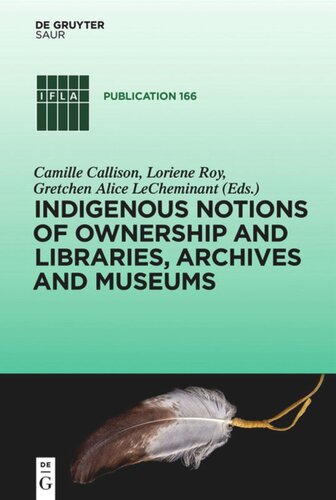

Most ebook files are in PDF format, so you can easily read them using various software such as Foxit Reader or directly on the Google Chrome browser.
Some ebook files are released by publishers in other formats such as .awz, .mobi, .epub, .fb2, etc. You may need to install specific software to read these formats on mobile/PC, such as Calibre.
Please read the tutorial at this link: https://ebookbell.com/faq
We offer FREE conversion to the popular formats you request; however, this may take some time. Therefore, right after payment, please email us, and we will try to provide the service as quickly as possible.
For some exceptional file formats or broken links (if any), please refrain from opening any disputes. Instead, email us first, and we will try to assist within a maximum of 6 hours.
EbookBell Team

0.0
0 reviewsTangible and intangible forms of indigenous knowledges and cultural expressions are often found in libraries, archives or museums. Often the "legal" copyright is not held by the indigenous people’s group from which the knowledge or cultural expression originates. Indigenous peoples regard unauthorized use of their cultural expressions as theft and believe that the true expression of that knowledge can only be sustained, transformed, and remain dynamic in its proper cultural context. Readers will begin to understand how to respect and preserve these ways of knowing while appreciating the cultural memory institutions’ attempts to transfer the knowledges to the next generation.